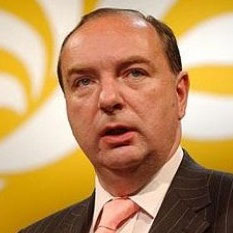Bus and business leaders present five-point plan for growth at House of Commons
- Like
- Digg
- Del
- Tumblr
- VKontakte
- Buffer
- Love This
- Odnoklassniki
- Meneame
- Blogger
- Amazon
- Yahoo Mail
- Gmail
- AOL
- Newsvine
- HackerNews
- Evernote
- MySpace
- Mail.ru
- Viadeo
- Line
- Comments
- Yummly
- SMS
- Viber
- Telegram
- Subscribe
- Skype
- Facebook Messenger
- Kakao
- LiveJournal
- Yammer
- Edgar
- Fintel
- Mix
- Instapaper
- Copy Link
Posted: 17 September 2012 | Stagecoach | No comments yet
Buses vital to generating connectivity, says business…


Transport Minister Norman Baker
Bus industry and business leaders will assemble in the House of Commons today to lobby Government with a five-point plan to generate economic growth.


Transport Minister Norman Baker
The importance of the bus to the UK economy, highlighted recently by an authoritative new report, will be presented to the House of Commons today in a new five point plan for growth (1).
The Buses and Economic Growth report (2), undertaken by the Institute for Transport Studies at the University of Leeds, revealed that more people commute to work by bus than all other public transport combined; bus commuters generate over £64 billion of economic output and 400,000 people are in better more productive jobs as a result of the bus.
Drawing on key findings from the report, Greener Journeys (3), a campaign to promote sustainable travel, produced the five point plan for growth Bus Policy: a five-point plan for growth which calls for:
- More co-ordinated pro-bus policy and funding arrangements at central and local government level
- Good value, multi-operator ticketing, in particular to help low-income groups and young people
- Taxation incentives for travelling by bus and more focus on travel planning support
- Local Enterprise Partnerships, businesses and town centres to help fund bus improvements to boost local economies
- Closer partnership working between bus operators, business and local government
Transport Minister Norman Baker said: “Buses are the mainstay of the public transport sector, carrying millions of passengers every day for business and leisure as well as helping to cut carbon by reducing congestion and replacing car journeys. And crucially, as this report highlights, buses are a keystone to the economy.
“The coalition Government strongly supports bus travel. We spent £1.77 billion last year supporting passengers travelling by bus in England, including financing for local government major projects and our Better Bus Area Fund. This was in addition to our £600 million Local Sustainable Transport Fund which is helping to finance projects improving provision of bus services and facilities for passengers.”
Rhian Kelly, Director of Business Environment for the CBI, said: “We’ve all been thinking about how to re-balance our economy, create more connectivity and revitalise our communities. What this report does is articulate the vital role of public buses in underpinning this activity. It reminds us that buses play an important role in supporting our towns and city centres. Indeed, more people access the high street by bus than any other mode – 40% of trips to the high street are made by bus, as opposed to 30% by car.”
Sir Brian Souter, Stagecoach Group Chief Executive, said: “Every pound invested in buses is an investment in the future of our communities, our high streets and city centres, our young people and our country’s economy. We need more joined up thinking across Government, better partnerships between transport operators, local authorities and business, and a focus on practical measures that make the bus the travel mode of choice. These are low-cost, and in many cases, no-cost solutions but they have the potential to be a real springboard for growth and a more sustainable future.”
Tim O’Toole, FirstGroup Chief Executive comments: “The bus is critical to the UK’s economy. Two thirds of all public transport users take the bus – it is the backbone of how people get to work, visit town centres and access leisure facilities. As this case shows, investment and support of our bus services will help reinvigorate local economies, reduce congestion and reduce carbon emissions.”
David Brown, Go-Ahead Chief Executive, formerly responsible for all of London’s buses at Transport for London said: ”Buses provide crucial access to labour markets and support to businesses and local retail economies. People understand the social and environmental importance of buses. This report highlights the economic benefits that the bus can bring.”
“In these difficult times we need to exploit the potential of the bus to stimulate jobs and growth,” says Claire Haigh, Greener Journeys Chief Executive. “We need to match up unemployed people with jobs. For too many cars are a luxury they can’t afford, buses provide essential access. This is why we are calling for fairer tax treatment for bus passengers, and measures like tax incentives for bus commuting.”
David Martin, Arriva Chief Executive, said: “The Government has been exploring how the planning system can be better used to support economic development and regenerate the economy. At the same time, it’s vital to ensure the planning system delivers the right incentives for local authorities and developers to provide the right transport infrastructure and environment to support bus services which help underpin that growth.
“Ensuring employers have access to a wider pool of labour and people have more opportunities to use public transport to get to work or make a new job possible has never been more important than it is now. The bus provides lower cost transport options which have less impact on the environment and can help mitigate the environmental and economic impacts of congestion on our roads.”
Related organisations
Arriva, FirstGroup, Go-Ahead Group, Stagecoach
Related people
Brian Souter, Claire Haigh, David Brown, David Martin, Tim O’Toole



